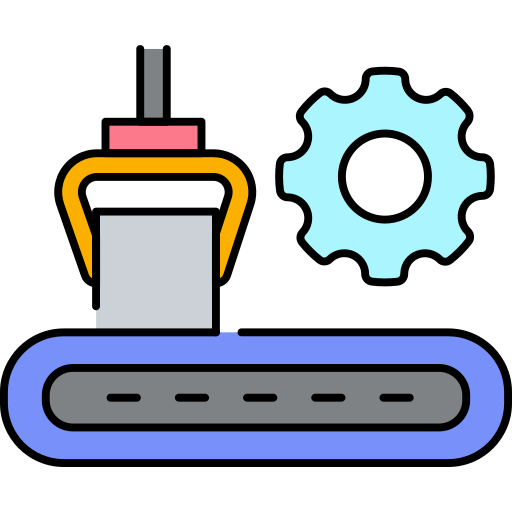ERP for mechanical engineering and metallurgy
Enterprise Resource Planning (ERP) is a vital tool for the manufacturing industry, including the machinery and metallurgy sectors. ERP systems help businesses manage their entire production process, from supply chain management and inventory control to production planning and financial management.
For machinery and metallurgy companies, ERP systems provide critical functionality such as tracking the production process from start to finish, managing complex bills of materials, and optimizing resource utilization. With real-time data and reporting capabilities, these systems help businesses make informed decisions and improve operational efficiency.
Here is an extended list of possible ERP capabilities for these industries:
- Materials management: ERP systems can manage inventory levels, track raw materials and finished goods, and optimize purchasing and replenishment.
- Production planning and scheduling: ERP can help manufacturers create production schedules, allocate resources, and optimize workflows to improve efficiency.
- Quality control: ERP can monitor production processes to ensure compliance with quality standards, and track product defects to identify areas for improvement.
- Sales and customer relationship management: ERP systems can manage customer information, sales orders, and customer service requests.
- Financial management: ERP solutions can track costs and expenses, manage accounts payable and receivable, and generate financial reports.
- Supply chain management: ERP systems can optimize supply chain processes by managing vendor relationships, tracking shipments, and managing inventory levels.
- Human resources management: ERP solutions can manage employee information, track time and attendance, and handle payroll and benefits administration.
- Project management: ERP systems can track project timelines, budgets, and resources, and provide real-time visibility into project progress.
- Maintenance management: ERP can manage maintenance schedules, track equipment downtime, and optimize maintenance processes.
- Business intelligence and reporting: ERP solutions can generate reports and dashboards to provide real-time insights into business performance and identify areas for improvement.
- Shop floor control: ERP systems can monitor and control shop floor activities, such as job scheduling, material movement, and work-in-progress tracking.
- Engineering change management: ERP can manage engineering changes, including version control and approval workflows, to ensure product quality and consistency.
- Compliance management: ERP solutions can manage regulatory compliance requirements, such as environmental regulations or safety standards.
- Warehouse management: ERP systems can manage warehouse operations, including receiving, picking, and shipping, to optimize inventory management and reduce order fulfillment time.
- Document management: ERP can manage document workflows, including version control and approval processes, to ensure compliance and improve collaboration across teams.
These are just a few examples of the many capabilities that ERP solutions can provide for machine building and metallurgy industries. The specific features and functionalities of an ERP system will depend on the needs of each individual organization.
Pricing ERP for engineering and metallurgy #
Solutions "ERP for mechanical engineering and metallurgy" #
Features ERP for engineering and metallurgy #
Integrators ERP for engineering and metallurgy #
This is a list of our partners who have experience or industry solutions in the area "ERP for engineering and metallurgy". They can build a custom CRM or ERP system for you on the OneBox platform.


















